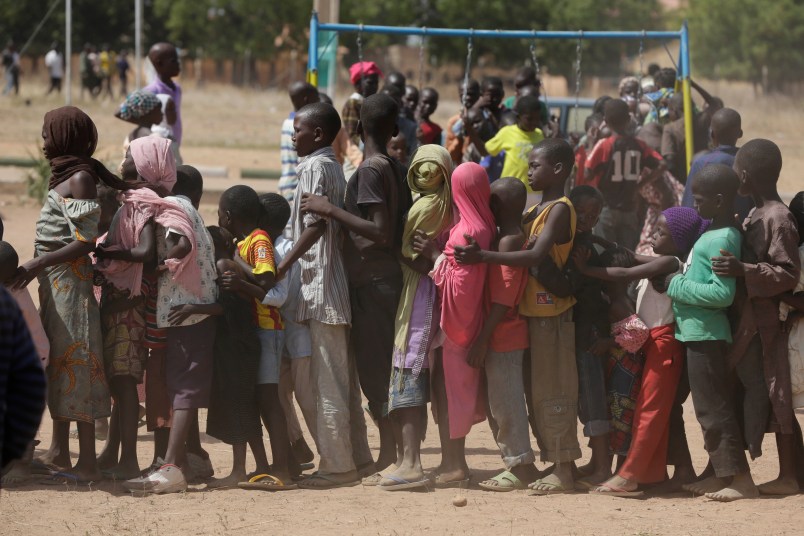LAGOS, Nigeria (AP) — The children’s drawings show men with guns, a coffin, a car exploding. One picture has stick-like figures of eight siblings missed by their teenage sister.
The disturbing images come from some of an estimated 800,000 children forced from the homes by Boko Haram extremists, according to a UNICEF report published Monday.
It says the number of refugee children has doubled in the past year, making them about half of all the 1.5 million Nigerians made homeless in the Islamic uprising.
“Children have become deliberate targets, often subjected to extreme violence – from sexual abuse and forced marriage to kidnappings and brutal killings,” the report says. “Children have also become weapons, made to fight alongside armed groups and at times used as human bombs.”
The number of children absent from primary school in Nigeria has increased from 8 million in 2007 to 10.5 million- the highest figure in the world, it says. Boko Haram has targeted schools, destroying or severely damaging more than 300 and killing 314 students and 196 teachers, UNICEF says.
The nickname of Nigeria’s home-grown Islamic extremist group, Boko Haram, means “Western education is forbidden” or sinful.
One picture in the UNICEF report shows stick figures of the eight siblings missed by Rita, a 14-year-old living in a refugee camp in neighboring Chad with her mother, father and one younger sister. They became separated when Boko Haram attacked the Nigerian town of Baga, and she knows how worried they must be.
“When you have your mother around, you (are) not worried about anything. But if she is missing … you are worried the whole time,” the report quotes Rita as saying.
Called “Missing Childhoods,” the report was published ahead of the first anniversary of the mass kidnappings the night of April 14-15, 2014, of nearly 300 schoolgirls from Chibok. Dozens escaped on their own but 219 remain missing.
Copyright 2015 The Associated Press. All rights reserved. This material may not be published, broadcast, rewritten or redistributed.









